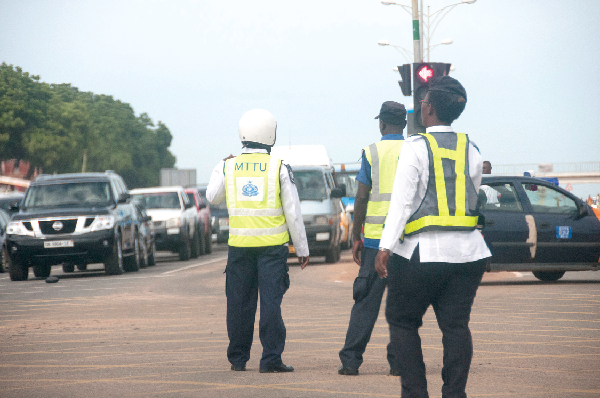
Where do we go when trouble brews?
The Ghanaian society is made of both good and bad people living together in communities. To protect the good from being attacked and molested by the bad, law enforcement agencies are established.
The law enforcement agencies are equipped with needed resources and laws promulgated to empower them to secure public safety, combat crimes of all sorts and promote peace in society.
However, the agencies mandated to implement law and order are unable to effectively identify and manage the few bad lots.
It has become extremely difficult to identify the right people within the law enforcement agencies to whom crimes or hideout for criminals should be reported. The possibility of that individual confiding in the criminal in question or the accomplice in uniform may be high. Hence the outcry — where do we go?
Stories abound in local communities, as well as the print and electronic media about the depravities in such agencies. These activities include terrorism, murder and extortion by the same people mandated and equipped to protect the members of the community. Officials tend to connive with criminals to commit heinous crimes in communities, rendering people helpless and in fear.
Where then are victims expected to seek redress? Is it to the same “professionals” who falsely incriminate people and extort? Or the community members who betray whistleblowers to criminals? How safe are citizens?
This paper draws attention to peculiar incidences that put the security situation and trust in law enforcement agencies in Ghana at risk, while appreciating the majority good professionals who work around the clock to promote law and order.
Public trust in law enforcement agencies
Trust, in the perspective of this article, refers to the interactive relationship between citizens and officers of state security institutions. Ben Bradford and Jonathan Jackson in their research — “Trust and confidence in the police: A conceptual review”, opined that trust has a lot to do with personal actions of the relationship dynamics among people.
Also, Francis Boateng (—Public Trust in The Police: Identifying Factors That Shape Trust in The Ghanaian Police) postulated that law enforcement agencies can gain public trust if members perform their duties with fair-mindedness, impartially, professionalism and firmness without fear or favour. The outcome of Gerald Dapaah Gyamfi’s research (Exploring public trust in policing at a community in Ghana), revealed that people have had past bitter experiences where reprisal attacks were meted out to them for whistleblowing to law enforcement agencies.
This situation may not be generalised to the larger number of law enforcement agencies; however, attention needs to be drawn to the authorities concerning the possibility of recurrence in such agencies.
Although law enforcement agencies have achieved great results in their attempts to protect the citizenry, negative actions of a minority few among them thwart their efforts.
Therefore, it is important for them to work assiduously to earn trust from the public by implementing mechanisms that facilitate the culling of the few bad lots that tarnish the agency’s image from within. If informants’ fear of reprisals from criminals are alleviated and they are assured of protection, trust will be gained.
Some stories
It is prudent to share a few stories to justify the fear of insecurity. Although these stories are publicly discussed and some debunked with rejoinders to prove otherwise, the situation remains the same because the public is unconvinced. The first story selected for this article is the publication in the New Crusading Guide Online on May 27, 2021. The publication was titled: 5 Police Officers Detained for Allegedly Extorting GHc 38,000 From 2 People.
The first victim claimed to be in an Uber vehicle on his way from Madina to the airport around 2 a.m. when five armed policemen stopped the vehicle, accused him of being a fraudster, let of the driver and asked that an amount of GHc 20,000 be transferred into a mobile wallet. A similar situation occurred the same day at 11 p.m. off the Atomic-Madina Road at 11:23 p.m. The victim, who drove an unregistered Mercedes Benz, was stopped by three armed policemen who searched his car, accused him of being a cyber-fraudster and arrested him. They escorted him to the Silver Star Towers and coerced him to withdraw an amount of GHc 20,000 from an ATM for them. There are other stories of this nature occurring recently.
Consequently, it has become scary to drive at night. Who are these armed people in uniform terrorising people at night? What can be done to stop them from committing these heinous crimes? What must be done to increase public confidence in law enforcement agencies? Could alleviation of informants’ fear of reprisals contribute to gaining public trust?
This calls for conversations among the citizenry to generate ideas for minimising the occurrence rate of such phenomena.
The writer is a lecturer at Ashesi University, Accra
